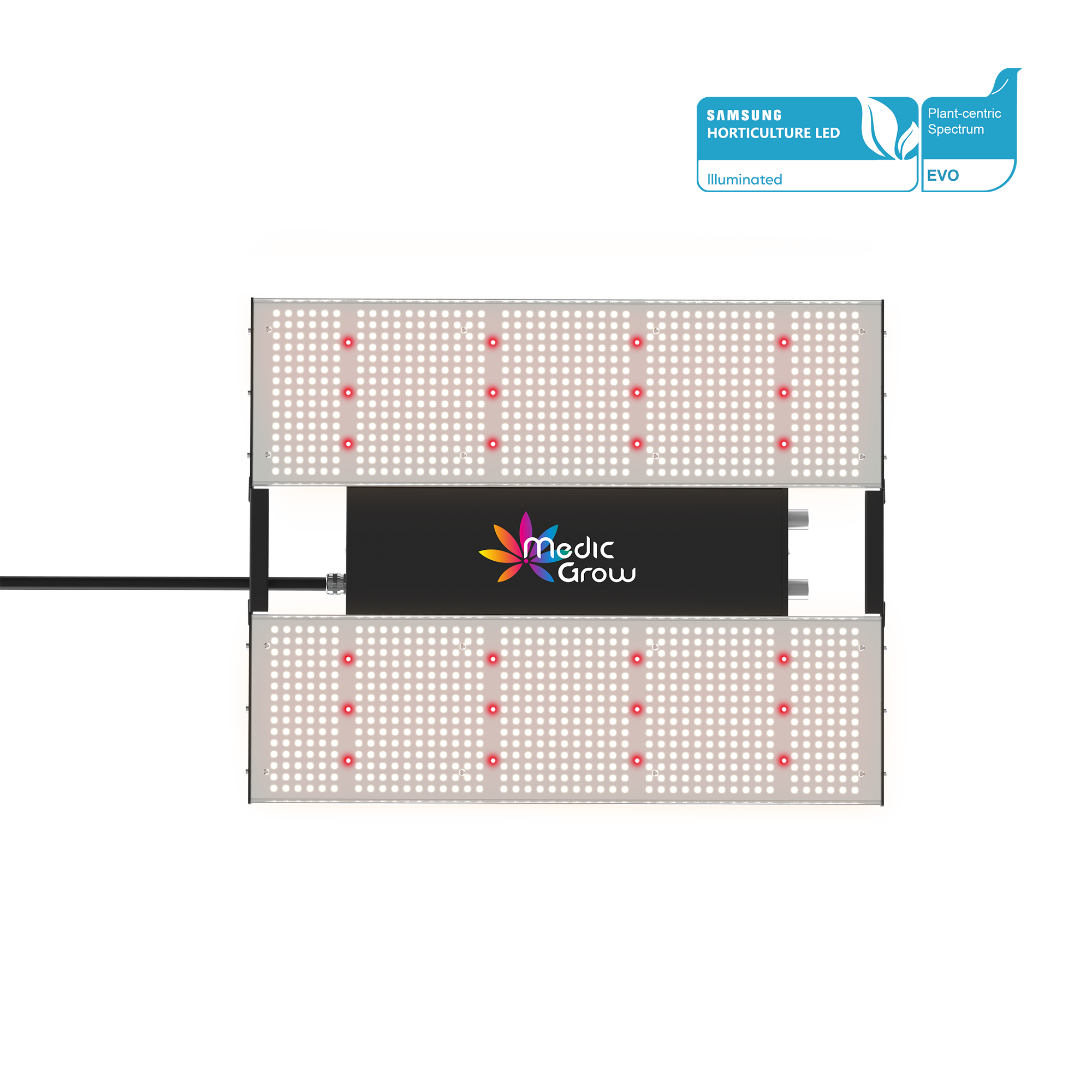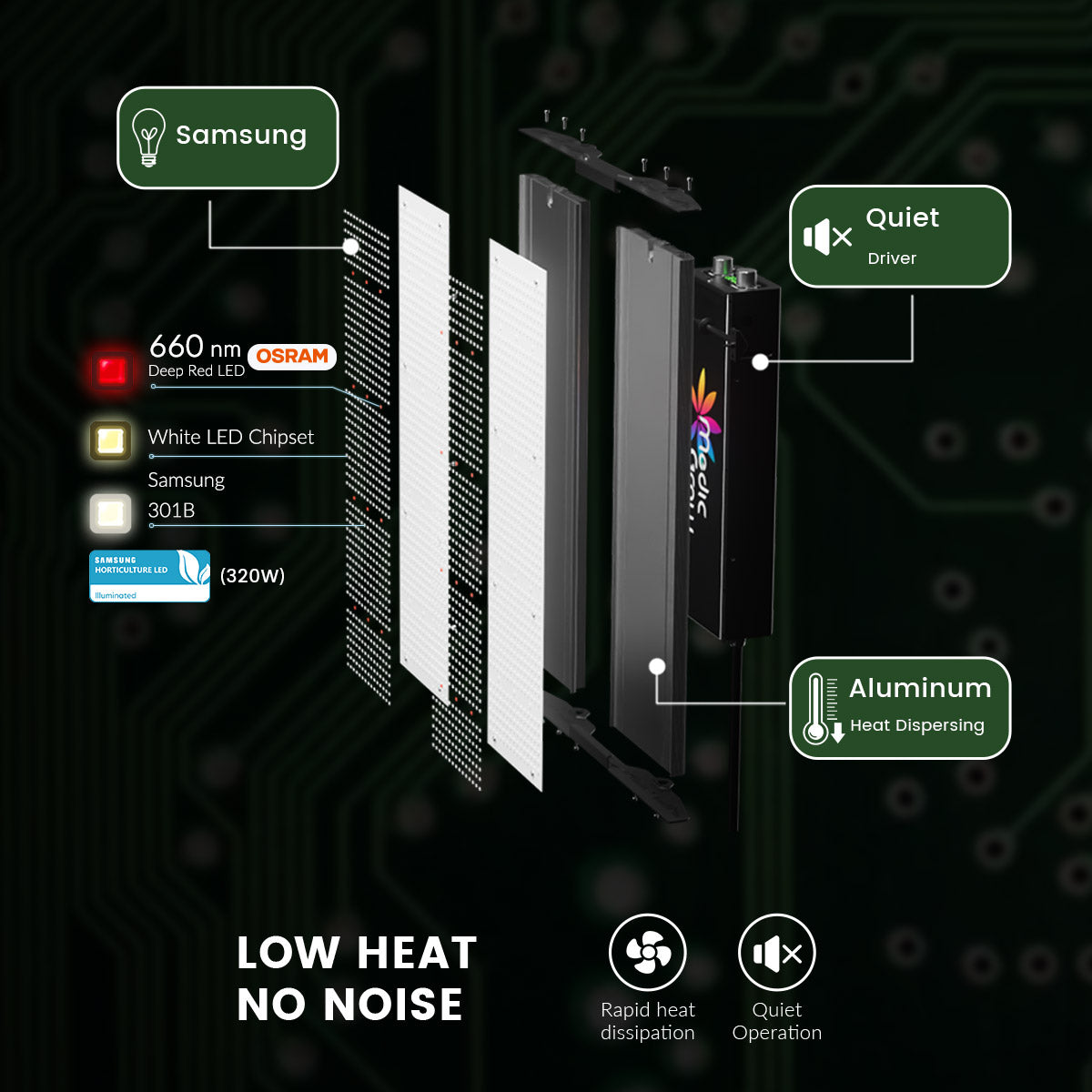9% OFF For New Subscribers

🌿 What is PAR & ePAR Light? Understanding the Language of Plant Lighting
“What exactly is PAR light?”

When we talk about plant growth lights, one of the most common questions is:
“What exactly is PAR light?”
And lately, you may have also heard a newer term — ePAR.
Let’s decode what these really mean — and why they matter for growers who want precision and performance from their lighting systems.
💡 PAR: The Foundation of Photosynthesis
PAR (Photosynthetically Active Radiation) refers to the range of light wavelengths that plants can use for photosynthesis — typically 400–700 nanometers (nm).
In simple terms, it’s the “visible” light that drives plant energy production.
-
Blue light (400–500 nm) promotes vegetative growth and strong stems.
-
Red light (600–700 nm) triggers flowering, fruiting, and overall yield.
Grow lights designed to maximize PAR output ensure that every photon counts toward photosynthesis — not just brightness visible to the human eye.
🌱 ePAR: Expanding the Spectrum
Recent research has shown that plants don’t stop responding at 700 nm.
In fact, far-red light (700–750 nm) plays a key role in:
-
Accelerating flowering
-
Increasing biomass
-
Influencing plant morphology (e.g., stem elongation)
That’s where ePAR (extended PAR) comes in — expanding the measurable light range from 400–750 nm.
ePAR recognizes that far-red photons can work synergistically with red and blue light to boost photosynthetic efficiency — a phenomenon known as the Emerson Effect.
⚙️ Why It Matters for Modern Growers
For growers using advanced LED lighting systems, understanding PAR vs. ePAR helps fine-tune lighting recipes for each growth stage.
-
Vegetative phase: Emphasize blue-rich PAR for compact, leafy growth.
-
Flowering/fruiting phase: Blend red and far-red (ePAR range) to enhance yield and bloom quality.
-
All stages: Use full-spectrum, balanced light to mimic natural sunlight while maintaining energy efficiency.
🌞 The MEDIC Advantage
At MEDIC, our grow lights are engineered to deliver optimized PAR + ePAR output, ensuring your plants receive the complete light spectrum they need — from seedling to harvest.
With precise spectral control and intelligent dimming options, you can simulate sunrise-to-sunset dynamics that align with plant circadian rhythms, achieving both maximum growth and minimum energy waste.
🔍 Takeaway
Understanding PAR and ePAR isn’t just a technical detail — it’s the foundation of smart cultivation.
As the science of plant photobiology evolves, lighting technology must evolve with it.
So next time you see a “full-spectrum” grow light, ask yourself:
👉 Is it truly PAR optimized — or ePAR ready?
Featured Products


Medic Grow Fold-8 Full-Spectrum 760w Commercial LED Grow Lights ETL & DLC Certified for 4X4/5X5


Medic Grow MINI SUN-2 Full Spectrum Dimmable 150W-500W LED Grow Light for 2X2/3X3


Medic Grow Ez-8 Smart Dimmable Full Spectrum 1000 Watt LED Grow Light for 5X5 Planting


Medic Grow Smart-8 Full Spectrum Dimmable 760W LED Grow Light with Timer - High Yield Lamp for 5x5 Tent


Medic Grow Venus Full Spectrum Cost-Effective 200W LED Grow Light for Vegetative and Beginner: 2X4FT


Medic Grow Fold-650 Built-in dimmer 650W Led Grow Lights V1 Spectrum


Medic Grow Fold 1200 Watt Commercial Red and Blue Full Spectrum LED Grow Light ETL & DLC Certified for 4X6 Planting
Blog Posts

Behind the Glow: The Science of Precision in Every Medic Grow Light

Medic LED Grow Lights: Leading the way in horticultural lighting standards

🌱 LED Grow Lights: A Hardware Engineer’s Buying Guide

- led grow light
💡 Top + Bottom Grow Lights: The Future of Precision Cultivation
Contact Us with Any Idea!
- Choosing a selection results in a full page refresh.
!














